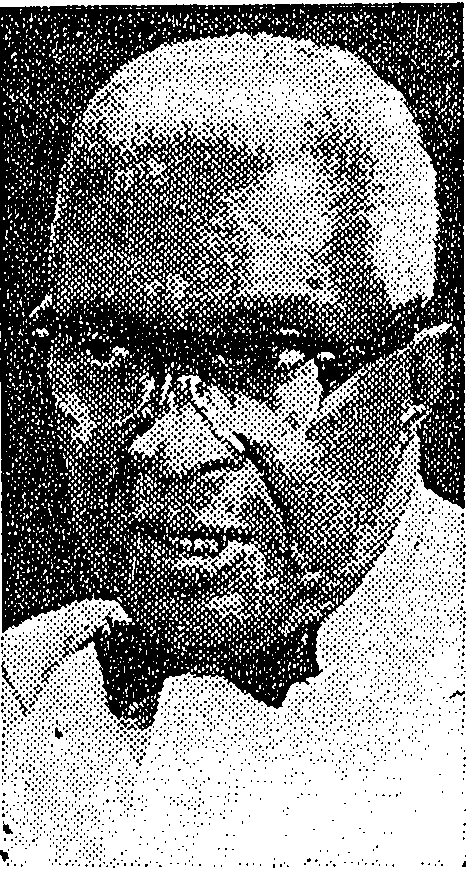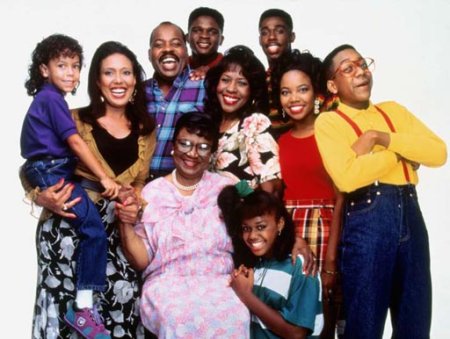
Harold C Burton was the patriach of black Republican politics in the US for over 30 years. |
It is early in 1904 and packed in among the fresh fruit, molasses, vanilla and limes on the steamer as it made its way slowly out of the Roseau harbor was sixteen year old Harold Charles Burton.
The tall, strikingly handsome, bright, sixteen year old was leaving Dominica for good headed for the glitter and bright lights of New York city, along with several of his siblings. At that time he could not have guessed that he was destined to become one of the most influential black leaders in American politics during the tumultuous decades of the 30’s, 40’s and 50’s.
Born in Roseau on November 13, 1888, Burton was an exceptional student and voracious reader, who kept abreast of political developments in the United States while attending school in Dominica’s capital Roseau and later at St Mary’s College in Trinidad.
Arriving in Harlem in the spring of 1904, he wasted no time in joining the campaign of the incumbent for president of the United States Colonel Theodore Roosevelt. The young Burton campaigned tirelessly for Roosevelt through the length and breath of Harlem, often using a horse-drawn cart, distributing leaflets and encouraging blacks to support Roosevelt in the fall elections.
In November 1904, Roosevelt easily won the presidency and a gratified Burton with an appetite for learning nurtured in his native Dominica, he turned his attention to furthering his education. He enrolled in the New York Electrical School where he trained as a plumber and an electrician, in the process becoming one of the first African Americans in New York State to become a licensed plumber and electrical engineer.
He would go on to launch a successful electrical and plumbing contracting business between 1928 and 1941 before immersing himself in republican party politics.
In 1911, his first child was born to his wife Marie, whom he named Rosetta. In the early 1900’s America was a tormented place with respect to race. Racism was rampant and although less severe in the North compared to the South of America it was no less present. The young Burton gravitated toward the Republican Party because at that time with visionary leaders like Roosevelt, the Party seemed more likely to promote the civil rights of blacks.
Just a few years after the birth of his daughter, his faith in the American way of life would be put to the ultimate test. Marie, at that time pregnant with his second child would die of complications from giving birth because according to the Los Angeles Times “a Harlem hospital refused to treat her because she was black.”
Published reports at the time indicate that the hospital later relented when an Irish policeman who went to the same Catholic church with the Burtons’ intervened, but doctors left her in the hallway, where she died of pneumonia.

Rosetta LeNoire an accomplished singer, musician and actress in the center of the picture was the first daughter of Harold Burton. |
This was a tragedy caused by racism and the experience more than any other would define his political career going forward. Nonetheless, he was a product of the burgeoning Harlem Renaissance--a time of great artistic fervor in the African-American community of Harlem. During that period he moved freely among the jazz greats some of whom would go on to influence his daughter.
Rosetta LeNoire Burton would go on to form her own theater company and would later perform on several Broadway productions and appear in numerous movies and Television series. Over a career spanning more than 70 years she moved effortlessly from black McBeth to television grandmother. Perhaps her most memorable role was as Mother Winslow in the widely popular series Family Matters. She was also an accomplished musician and singer, and died in 2002 at the age of 91.
There is reason to believe that the extraordinarily gifted young Burton caught the attention of Theodore Roosevelt for whom he campaigned so tirelessly. In fact, when Roosevelt decided to take a break from politics and to travel the world, he chose to visit Dominica in 1916. Not surprisingly Roosevelt visited only Dominica and Trinidad, the two countries with which Burton was intimately familiar.
One can only surmise that the former president must have heard first hand from Burton how much he was loved by the Dominican people and what an intriguing place it was. Press reports at the time hailed the visit of the former president to Dominica on February 20, 1916.
A headline in the New York Times blared “The Colonel Hailed as America’s King: Thousands of negroes shout as he reviews army on island of Dominica.” The paper went on to say “Colonel Roosevelt praised the government of the island and called attention to the prosperity which it was enjoying. He discussed the products of the island and their importance to the world, and talked about the history of the island.”
Back in Harlem, Burton continued his active interest in politics while he pursued his business interest. In 1944 he was selected as one of the New York delegates to the National Republican Convention, as the country prepared to select its president.
He would subsequently serve as a delegate in 1948, 1952, 1956, 1960 and 1964. In 1948, the year in which he was chosen to run as the US representative from New York’s 22nd District he was given the task of overseeing, writing and defending the Republican Party’s plank on Civil Rights.
Although he failed in his first bid to the US congress as well as his second in 1952, losing to the democratic candidate on both occasions, his showing at the convention cemented his place as the leading black Republican in the country. From that time until the early 1960s he would become the leading black voice in that party.
For almost two generations following the Civil War black voters remained loyal supporters of the Republican party. According to Michael Burman, “The politics of civil rights first arose as an issue in the 1930s when large numbers of black voters, living in northern urban areas, joined the Democratic party to support Franklin Roosevelt’s New Deal.”
So by the time Burton offered himself for active politics, the political landscape was beginning to change with thousands of blacks abandoning the Republican party.
As a delegate to the Republican National Convention in 1952, he led a temporary revolt against the civil rights plank, and switched his support from Senator Taft to General Eisenhower, after he was assured that an enforceable Federal fair employment practices law would be adopted. Burton’s leadership on the issue and his support for Eisenhower paved the way for the other black delegates to throw their support behind Eisenhower who would go on to win the nomination and the general election.
At the 1960 Republican convention he vainly urged New York Governor Rockefeller to accept the nomination as Vice President with Richard Nixon as President. In 1962 Burton rose in defense of Governor Rockefeller when he publicly called on the National Chairman of the Democratic party to retract his allegation of racial prejudice against the governor, calling the attack: “a violation of decency.”
By then Burton was the most senior and highly respected black leader of the Republican party. Perhaps the strongest manifestation of his belief in civil rights and his fight against racism came in 1964 when he flatly refused to support the candidacy of Republican Barry Goldwater against Democratic contender Lyndon Johnson.
The 76 year old patriarch of black republicans in New York stated “ We will not put up signs for Mr. Goldwater. We will not distribute literature for him. We will not make speeches for him. We will not invite him into our communities.”
“Goldwater is against everything Negroes stand for. He is against civil rights, he is against social security, and he is against the Supreme Court.” Burton was quoted as saying. “I have made up my mind not to vote for him. I was hoping he would change but he is getting worse.”
The young man who had left the shores of his homeland Dominica and who made an indelible mark on US politics died at his home in the Bronx, NY on July 23, 1971.
